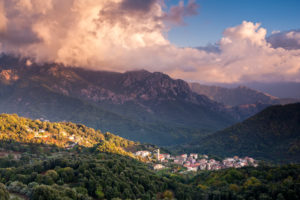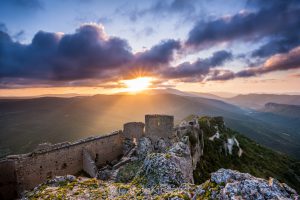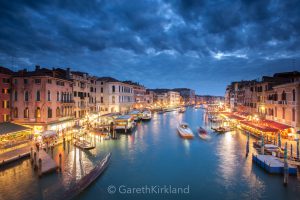
I have had so many people ask me about Photoshop. Probably as many as ask me about my photographs, how I took them, aperture, shutter speed, what time of day it was taken, what camera etc. I have become aware especially during my photography workshops in France that a lot of people get themselves into a real pickle about the whole subject, to the point that it is a positive discouragement to their photography because they feel inadequate that they are not some Photoshop expert. I have had people say to me that they would like to do my workshops because they are ‘totally stuck with Photoshop.’ Or, ‘I really want to take my photography to the next level, I’ve bought lots of Photoshop magazines but still feel quite stuck.’ My answer to most of these dilemmas is ‘why are you buying a Photoshop magazine to learn about photography?’ A Photoshop magazine will help you become more proficient in Photoshop, not become a better photographer.
I think the whole thing has become a bit muddled in some peoples minds. Sometimes it’s not helped buy various statements we hear, usually from Photoshop gurus saying, “if you are not fully proficient in Photoshop that you cannot be a professional photographer in this day and age.” Well I suppose they would say that. Trouble is I’ve never been particularly trusting of gurus. You always get the feeling that you are being sold something. So, such a statement is of course nonsense. I know its nonsense because I know many photographers who are not Photoshop wiz kids and who still continue to make a good living from photography. We all like simplicity and certainty and the media loves definitive statements. The problem with definitive statements is that they are usually wrong. They are wrong because they are always over simplistic and make huge generalizations and assumptions. In my experience, life is rarely simple and very rarely black and white. Of course you get the same type of statements from the anti digital anti Photoshop brigade. That somehow because you shoot digital and use Photoshop that you stopping one stop short of witchcraft and the acts of Satan himself. I often have conversations with people, when I’m exhibiting my work in Photo Gallery in Sarlat, who can hardly hide their distain when you tell them that they are digital prints and that they have had some work done in Lightroom or Photoshop. Almost as though these images are fakes in some way. I’m no photographic historian, but I do know that image manipulation is nothing new and that people have been retouching, painting, tinting, dodging and burning since the advent of the camera and Photoshop is just an extension of that process in the digital age. The people who feel this way are generally slightly older, but not always.

Photography Courses and Workshops
I once met a young chap who was very dismissive of digital photography. He who was doing a college course in France, which was conducted entirely using the medium of film. Digital photography was not touched upon. Now I think there will always be a place for film, quite rightly. But if we are to teach people about photography with a view to them making a career out of it, how can we ignore digital photography. One of the down sides to the wide use of Photoshop, is when it’s assumed that every image is heavily manipulated in such programmes. This summer, I had a very nice young man standing in front of my photos and explaining to his less knowledgeable friend how my photos had been edited using HDR ( High Dynamic Range) software. I happened to over hear and so I told him that I don’t use such software and explained how such effects are achieved. One, by shooting at times of the day when lighting conditions are at their optimum, two by using graduated filters, which allows you to get shots that otherwise would not be possible and three, by understanding how to capture a correctly exposed digital file which will give you the maximum amount of information to work with later in post production. So, like it or not, he got a mini workshop. I get this quite a lot.
Editing Photos
When people see an image that they know is very different from the type of an image that they could capture, they assume it must be all Photoshop. Now I’m not getting all sniffy about it, but it would be a shame if peoples understanding of photography was so affected by imaging software that the general assumption is that any great photograph must have been heavily manipulated. Also, if I have bothered to get up at three thirty in the morning, again, and invested in very expensive filters and other equipment, it would be nice to have a bit of acknowledgment for that fact One thing that’s for certain, digital photography is the future and programmes like Photoshop are here to stay. I think I’ve just made a definitive statement, oh dear.
In any case, I think both of these rather extreme points of view are misguided. One of the things I love about this profession is how many different types of photography there are. And within those categories you have so many different styles, tastes and approaches. It does rather annoy me when people become start telling other people how they should be taking their images, as though there is only the one way. For me personally, I sit somewhere in the middle of these two camps. I tend not to use Photoshop so much, but do most of my post processing in Lightroom. I will get the image almost to completion here, then convert from the raw file to a 16-bit tiff and import into Photoshop. Here I will dust bust and remove distracting objects, such as satellite dishes, TV ariels etc. Then I take the tiff image back into Lightroom . At this point I will make various copies in different file formats depending on the images use.

After this I will add sharpening, again depending on it’s intended use. Sometimes this whole process will only take a few minutes and sometimes will take longer. I personally try to get as much correct with the camera on location as possible. As I mentioned earlier, I use a lot of filters, manly neutral density graduated filters and polarizer’s. I get up at ridiculous hours of the morning to capture beautiful lighting conditions, often I don’t, and will go back until I do. Generally, my best images are the ones that need the least work, just tweaking exposure levels, a little bit of tone curve work and a bit of dodging a burning perhaps. So this is my approach now. Will it be the same in five years? I doubt it. There I things I would like to learn in Photoshop. How to merge multiple images with different exposure levels, when filters alone won’t do the job, stitching images together to create a panoramic sounds great fun. In any case imaging software is always evolving bringing with it new possibilities and different working methods.
The point is, just because this is my approach doesn’t mean it has to be everyone else’s. In fact I’m really glad it isn’t or I wouldn’t be able to make a living. If some one wants to shoot a hundred skies and then shoot a hundred foregrounds to merge in Photoshop later, who am I to criticise. Or if you want to huddle in your dark room pretending the digital age never happened, no problem. What ever floats you boat! I think freedom of expression is not only our right as human beings, but also really important in terms of developing our creativity and unique vision, in an artistic sense. ‘Vive la difference’ as they say in France.